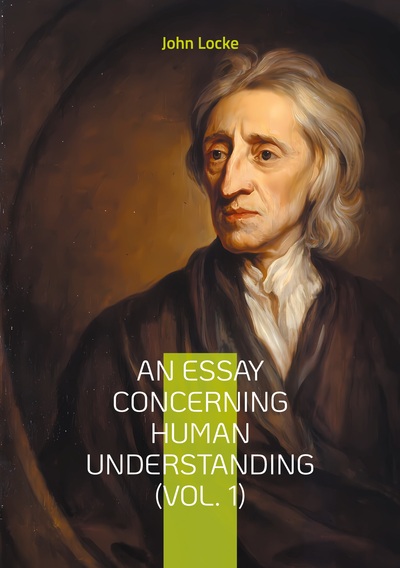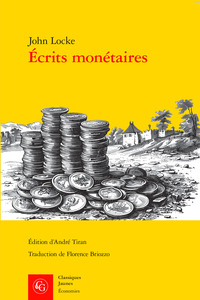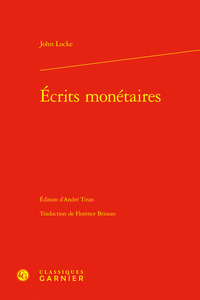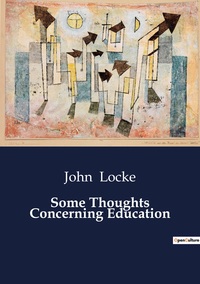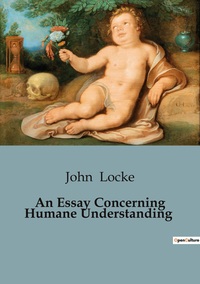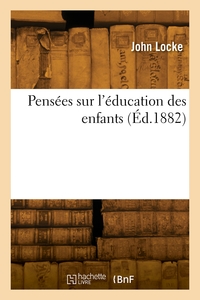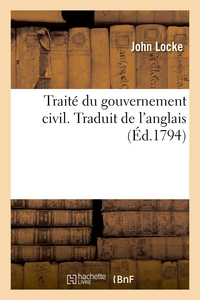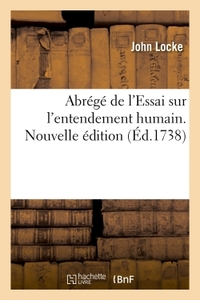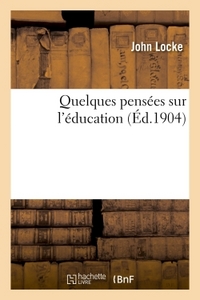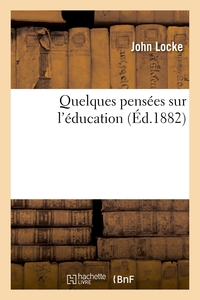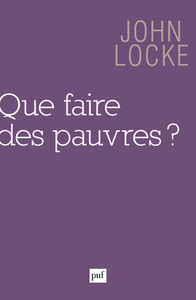Nous utilisons des cookies pour améliorer votre expérience. Pour nous conformer à la nouvelle directive sur la vie privée, nous devons demander votre consentement à l’utilisation de ces cookies. En savoir plus.
An Essay Concerning Human Understanding (Vol. 1)
Books On Demand - EAN : 9782322542925
Édition papier
EAN : 9782322542925
Paru le : 21 août 2024
29,90 €
28,34 €
Disponible
Pour connaître votre prix et commander, identifiez-vous
Notre engagement qualité
-
 Livraison gratuite
Livraison gratuite
en France sans minimum
de commande -
 Manquants maintenus
Manquants maintenus
en commande
automatiquement -
 Un interlocuteur
Un interlocuteur
unique pour toutes
vos commandes -
 Toutes les licences
Toutes les licences
numériques du marché
au tarif éditeur -
 Assistance téléphonique
Assistance téléphonique
personalisée sur le
numérique -
 Service client
Service client
Du Lundi au vendredi
de 9h à 18h
- EAN13 : 9782322542925
- Réf. éditeur : 361364
- Editeur : Books On Demand
- Date Parution : 21 août 2024
- Disponibilite : Disponible
- Barème de remise : NS
- Nombre de pages : 492
- Format : H:210 mm L:148 mm E:34 mm
- Poids : 707gr
- Résumé : An Essay Concerning Human Understanding by John Locke is a foundational text in the philosophy of empiricism, exploring the nature of human knowledge and the mind. Published in 1689, this Enlightenment masterpiece challenges the notion of innate ideas, proposing instead that the mind begins as a "tabula rasa" or blank slate, shaped by experience. Locke meticulously dissects the formation of ideas, distinguishing between simple ideas derived from sensory experience and complex ideas constructed by the mind. He examines primary and secondary qualities, emphasizing that our perception of the world is mediated by these qualities. Locke's exploration of personal identity introduces a psychological criterion, laying the groundwork for modern discussions on self and consciousness. The essay also delves into language, knowledge, and belief, offering insights into intuition, mathematics, and moral philosophy. An Essay Concerning Human Understanding remains a pivotal work in the categories of Philosophy, Epistemology, and Enlightenment Studies, influencing thinkers like David Hume and George Berkeley. Locke's clear and methodical approach invites readers to reconsider the origins and limits of human understanding.
- Biographie : John Locke, born on August 29, 1632, in Wrington, England, is a towering figure in the history of Western philosophy. Known as the "Father of Liberalism," Locke's contributions to political theory, epistemology, and education have left an indelible mark on modern thought. Educated at Christ Church, Oxford, Locke initially pursued a career in medicine, but his interests soon turned to philosophy and politics. His seminal work, An Essay Concerning Human Understanding, published in 1689, revolutionized the concept of knowledge by advocating empiricism and rejecting innate ideas. Locke's philosophy of mind, centered on the idea of the mind as a "tabula rasa," laid the foundation for modern psychology and cognitive science. His political writings, particularly Two Treatises of Government, championed the principles of natural rights and government by consent, influencing the development of democratic societies. Locke's ideas were pivotal during the Enlightenment, shaping the thoughts of later philosophers such as Voltaire and Rousseau. John Locke passed away on October 28, 1704, in High Laver, Essex, leaving a legacy that continues to resonate in the fields of Philosophy, Political Theory, and Enlightenment Studies.

